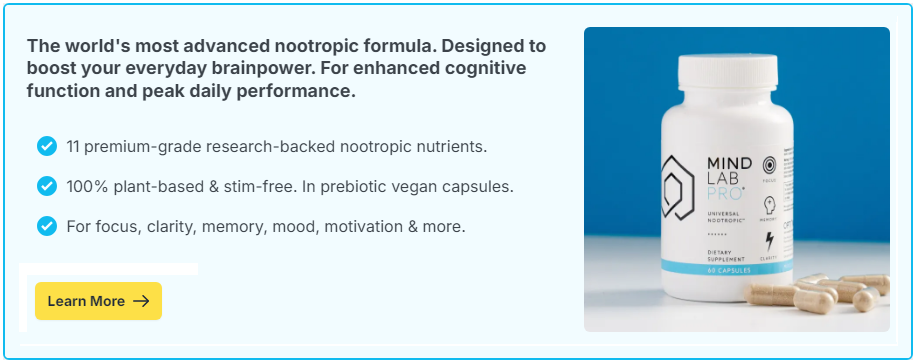
Academic writing is a cornerstone of research, but it presents a unique set of cognitive challenges. Whether drafting a journal article, thesis, or grant proposal, researchers must balance analytical thinking, creativity, and sustained focus. The writing process is often slow and mentally taxing, requiring a disciplined approach to avoid distractions, overcome writer’s block, and maintain productivity.
Fortunately, a combination of practical strategies and modern tools can help researchers enhance both creativity and focus. By optimizing workflow, managing distractions, and leveraging technology, academic writers can streamline their writing process and produce high-quality work efficiently.
Contents
Understanding the Cognitive Demands of Academic Writing
Academic writing is not just about putting words on a page—it’s a cognitively demanding process that requires:
- Complex problem-solving: Formulating arguments, synthesizing data, and structuring research findings demand deep analytical thinking.
- Extended concentration: Writing long-form content requires sustained focus over multiple sessions.
- Creativity in expression: While research is data-driven, presenting ideas in a clear, engaging manner requires creative thinking.
- Meticulous attention to detail: Proper citation, coherent argumentation, and logical flow require careful precision.
- Self-regulation: Without clear deadlines or accountability, procrastination can become a significant hurdle.
Understanding these cognitive demands allows researchers to adopt targeted strategies that enhance both focus and creative output.
Optimizing Focus: Strategies for Deep Work
Maintaining focus is one of the biggest challenges in academic writing. Distractions, mental fatigue, and information overload can derail productivity. Implementing structured strategies can improve concentration and writing efficiency.
Time Management Techniques
- The Pomodoro Technique: Work in focused 25-minute intervals, followed by short breaks to sustain concentration.
- Time blocking: Set aside dedicated writing sessions to prevent multitasking.
- Task batching: Group similar tasks, such as data analysis, drafting, and editing, to improve workflow efficiency.
Minimizing Distractions
- Use distraction blockers: Apps like Freedom or Cold Turkey block social media and distracting websites.
- Optimize your workspace: A clutter-free, quiet environment can enhance focus.
- Turn off notifications: Silent mode or “Do Not Disturb” settings reduce interruptions.
Enhancing Cognitive Endurance
- Take strategic breaks: Short walks or stretching exercises can refresh the mind.
- Practice mindfulness: Brief meditation sessions can help reset focus and reduce stress.
- Stay hydrated and eat brain-boosting foods: Proper nutrition supports sustained mental performance.
Boosting Creativity in Academic Writing
While academic writing is structured, creativity is essential for presenting ideas in a compelling way. Enhancing creative thinking can improve writing flow, generate innovative insights, and make research more engaging.
Overcoming Writer’s Block
- Freewriting: Write continuously for a set time without worrying about structure or grammar.
- Change writing locations: A new environment can stimulate fresh ideas.
- Engage in mind mapping: Visualizing concepts helps generate new connections and insights.
Techniques to Spark Creativity
- Read widely: Exploring diverse literature and perspectives can inspire novel ideas.
- Discuss your work: Conversations with colleagues can provide fresh viewpoints.
- Use the “Why?” technique: Asking “why” repeatedly about a concept can lead to deeper insights.
Essential Tools for Academic Writing
Technology can significantly enhance the writing process by improving organization, reducing errors, and increasing efficiency. Below are some of the best tools for researchers.
Writing and Editing Tools
- Scrivener: A powerful writing software designed for long-form projects.
- Grammarly: Helps with grammar, style, and clarity improvements.
- Hemingway Editor: Highlights complex sentences and suggests readability improvements.
Reference and Citation Managers
- Zotero: A free tool for organizing references and generating citations.
- Mendeley: Helps manage PDFs and collaborate with other researchers.
- EndNote: Advanced reference management for large research projects.
Focus-Enhancing Applications
- Forest: A productivity app that encourages focused work sessions.
- Brain.fm: Provides AI-generated music designed to boost concentration.
- Notion: A versatile tool for organizing notes, research plans, and writing drafts.
Structuring Your Writing Process for Maximum Efficiency
A well-structured writing process can reduce mental fatigue and improve output quality. Researchers can benefit from a systematic approach that breaks writing into manageable stages.
Phases of the Writing Process
- Preparation: Conduct thorough research, take organized notes, and outline key points.
- Drafting: Focus on getting ideas down without obsessing over perfection.
- Revising: Improve clarity, coherence, and argumentation.
- Editing and proofreading: Correct grammar, refine language, and ensure formatting accuracy.
How to Stay Motivated Throughout the Process
- Set clear goals: Define daily or weekly writing targets.
- Track progress: Use writing logs or apps like “Write or Die” for accountability.
- Reward milestones: Small incentives can boost motivation.
Maximizing creativity and focus in academic writing requires a combination of effective strategies and the right tools. Researchers can enhance productivity by optimizing their work environment, minimizing distractions, leveraging technology, and structuring their writing process strategically. By incorporating these methods, academic writers can sustain their mental sharpness, produce high-quality research, and make the writing process more efficient and enjoyable.

